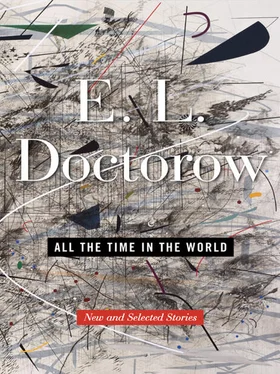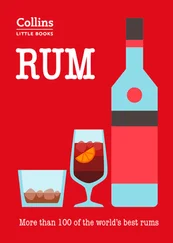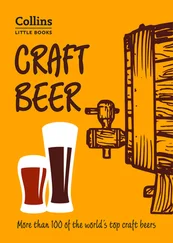AND NOW I AM back home and unaccountably sad. At the same time I feel I have been unfairly judged. This was not the kind of specificity for which I long.
You to whom I think I am talking may ask what I do when I’m not running or longing for specificity: I question my station in life. I believe I am retired, but I feel I am too young to have retired. On the other hand, or alternatively, I don’t know of any work that I’m doing that would suggest I’m not retired. As you can imagine, it would make anyone uneasy knowing there are things about himself he does not know.
I am not constantly unhappy, I’m not saying that. But my uneasiness builds until I have to talk to someone. At such times I speed-dial my therapist.
Yes? To whom do you think you’re talking?
Dr. Sternlicht?
You got him.
I’m having that feeling again.
That is to be expected.
It’s like I’m living in exile. I am lonely. I have no one.
That is to be expected.
Why? Why is it to be expected? That’s all you ever say.
No, I say other things. I say you’re in a rut. I say change your lifestyle, expand your horizons. A whole city is at your disposal: museums, concerts, the passing parade. I say go out and enjoy yourself. You’ve got all the time in the world.
Until what?
What?
You said I have all the time in the world.
Until what?
Until something happens.
What can happen?
If we knew. But we don’t, he says, and breaks the connection.
THE THOUGHT OF expanding my horizons is attractive, so I am on my way to the Museum of Natural History. And to change my lifestyle, I’ll take the bus. It dawns on me metaphorically that I have never appreciated the bus stop for the ancient invention it is. Carriages pulled up at inns, oxcarts creaked from one village square to another, pirogues made their landings along the rivers of Mongolia. The cartoon logic of the bus stop makes me smile with a love for all mankind. I wait faithfully at this stop and lightly inhale the city’s carcinogenic particulate.
An old woman with a walker is here with her black woman helper, whose expressionless face conceals a great anger. Also, three slim middle-aged men with closely cropped hair and matching sweatsuits. More trusting people arrive at the bus stop, a man in a doorman’s uniform, a priest, a pretty girl at whose mini-skirted backside I steal a glance. Also a pair of small, self-sufficient children, a boy and a girl, each of them holding a violin case. In their jeans and jackets, to say nothing of their mutual commitment to the violin, they might be twins.
I see our bus in the distance. It has been at that same distance for some time now. I see it over the car roofs. Nothing seems to be moving. The way things are going hundreds of us will be waiting at this stop before the bus ever arrives. Waves of dissonant horn blowing break over my ears. All at once I lose my love of mankind. I resume my old lifestyle and take off at a run between the cars because that is the only way I will get to the Natural History Museum.
THE MOMENT I COME through the doors, I hear that characteristic museum murmur. Maybe it is the murmur of visitors long gone because I look around, but I am the only person here. I find I am in the Mongolian Hall. I am tracking through the taiga , which is the name for this wild, snow-filled boreal forest of needle-leaf evergreens, spruce, and pine. I say I’m “tracking through” because I am there — this exhibit is a terrarium that you walk into, and as I move through this lush biome, the earth revolves, and from the frigid boreal forest with its cold stars visible even in dark winter daylight and its skulking hunting lynx hush-hushing through the snow, and its leaping snowshoe rabbit, and its stumbling terrorized blind vole, I find myself rotated to the green steppe where the snow has turned to rain and the rainy wind flattens the nap on the shepherds’ coats and the sturdy shepherds and their sons, quietly indifferent to the weather, walk their yaks and goats and sheep over the low rises of natural pasture. But things are changing still, and gradually the earth flattens, grows warm, and I am in Mongolia’s Gobi Desert, where the sun is blinding and the snakes coil themselves in the shade of rocks, and tiny tornadoes of sand sting one’s legs. Here is a Buddhist monk in a saffron robe dancing away from the sand stings. So I am not alone. I follow him as he dances in circles barefoot over the hot sand and spins right out of the Mongolian Hall of the Museum of Natural History and into a waiting bus. It is occupied solely by Buddhist monks in saffron robes. The bus door closes with a hiss as if it could drive off, but of course it can’t, not because it is a Buddhist bus but because it is locked in the unmoving traffic.
I resume my run now, I head downtown. I’m running well, still intent on expanding my horizons. But it suddenly comes over me that I have trudged through the taiga and hiked over the steppe and into the desert, going from cold to hot, from snow to sun, many times before. The fact is I know the Natural History Museum as well as my own hand. And so what new horizon? Not only have I been to the museum more times than I can count, I have never seen anything but the Mongolian Hall and never has it been without that Buddhist monk spinning in the sand.
There seems to be a flow of people going my way, runners running between the cars, walkers moving at a good pace on the sidewalks. Closing in on Times Square, I step into a doorway that has glass cases with black-and-white photos of dancing girls, and I flip open my cell phone.
Hello? To whom am I speaking?
To whom do you wish to speak?
My internist.
You’ve got him.
I feel weak, my legs are shaking. I’ve just run forty blocks, but I’m in good shape and I shouldn’t feel this way. I’m here in Times Square, there are thousands of people standing around and waiting for what I don’t know and I have never felt more alone. I think my heartbeat is irregular.
You’re not alone.
I’m not?
Irregular heartbeats are quite common.
What’s the use of talking to you!
You’re just frightened. It’s understandable. But it will pass. This is not an urgent situation, you know, you have all the time in the world.
I have?
Yes.
Until what?
Until something happens.
What can happen?
If we knew. But we don’t. On the other hand, what choice did we have?
You mean I will continue to feel miserably alone in the middle of crowds with my knees shaking?
That is probably the case, he says. And at other times too.
Why didn’t you tell me before this?
We’ve been telling you forever.
You have?
We inform you periodically. So when and if it happens you’ll be prepared.
Prepared for what? You are giving me the willies!
The willies is a slang term. Slang terms are time-sensitive, they are really not useful in the long run.
What?
Please use only the durable words. They’re no less important than grammatical relations.
I’m ringing off, I say, I’m hanging up, that’s two time-sensitive words right there, I say, and I flip the phone closed.
I STEP OUT OF the doorway and am swept into the crowd that’s pressing forward with great excitement. Here I am in despair, grieving for what or whom I don’t know, and all of it means nothing to the people around me, who are surging forward with eyes alight and shouts of joy. I let myself be carried along and I gaze upward to the array of signs and ads and giant videos of runners racing and racing cars crashing and movie actors shooting one another and other movie actors kissing one another in scenes from movies that they want you to worry over. Times Square is unnaturally brilliant in a light brighter than daylight with gigantic signs of sulking models, and cantilevered broadcast studios with flashing call signs, and modern glass tower office buildings reflecting the rainbow colors of the flashing signs and videos — it is all enough to make me want to forget my troubles here with the enormous swaying crowd, of which I am a part, basking as if it were in the radiant sunshine of the Great White Way, outshining the sun and turning the blue sky white.
Читать дальше












